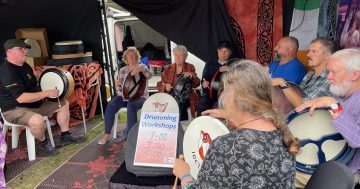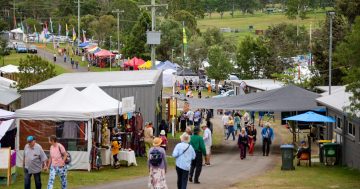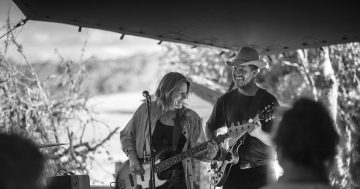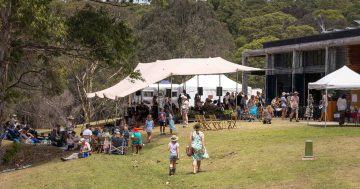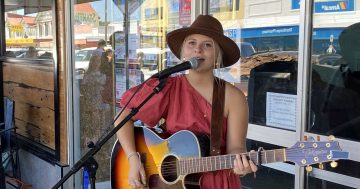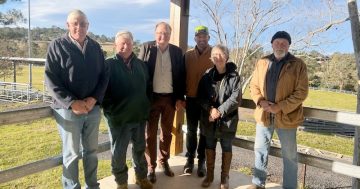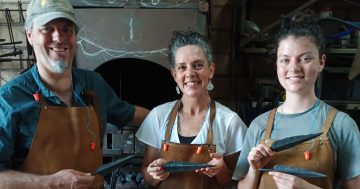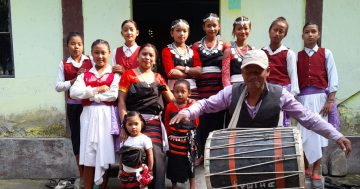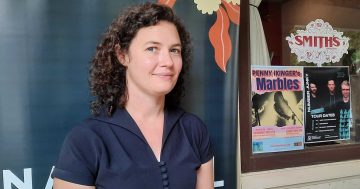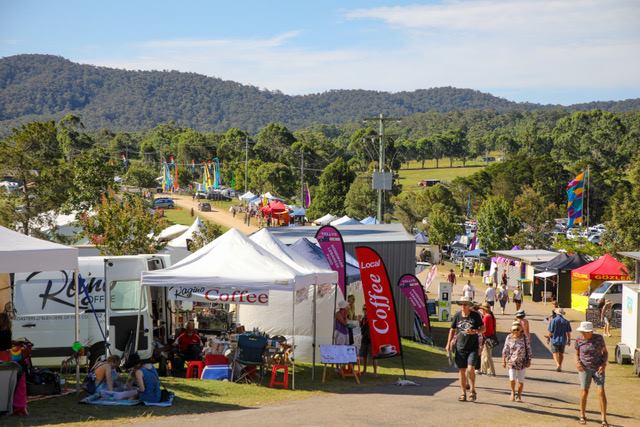
The Cobargo Folk Festival is a regular and anticipated event on the NSW Far South Coast events calendar, but it also faces its challenges. Photo: Cobargo Folk Festival Facebook.
Among the difficulties faced by the award-winning and much-loved Cobargo Folk Festival are cost increases of 30 per cent and a shift to last-minute ticket purchases due to the COVID pandemic.
Festival director Zena Armstrong and president of the Yuin Folk Club (which organises the festival) Peter Logue outlined the issues in their submission for the parliamentary inquiry into the challenges and opportunities in Australian’s live music industry.
The pair said the region had been severely affected by the 2019-2020 Black Summer bushfires before its music, arts and cultural sector was further damaged by the COVID-19 pandemic and they warned that regional festivals were not immune to the economic risks that had shut down bigger events.
“Over the last three years, expenses in crucial areas such as temporary infrastructure rental, sound and lighting equipment, artist fees, insurance, cleaning, security, public health measures and volunteer management have increased by approximately 30 percent and, in some instances, even more,” they said.
“Some of these are cost-of-living increases, others arise from the increasing costs of compliance.
“These escalating costs pose a significant risk to the sustainability of community-led festivals. Other challenges include volunteer fatigue, the rise in unpredictable, extreme weather conditions, and the need to recruit and mentor younger organisers with the time and skills to sustain these events.”
Ms Armstrong and Mr Logue said there had been a shift in audience behavior due to the pandemic, which had led to last-minute ticket purchases. This increased the financial challenges for festivals, which were dependent on strong, early sales.
“Unfortunately, government funding initiatives have not adapted to this trend. While grant programs usually focus on backing new projects, there is a growing need for recurrent, multi-year operational support for volunteer-led arts organisations,” they said.
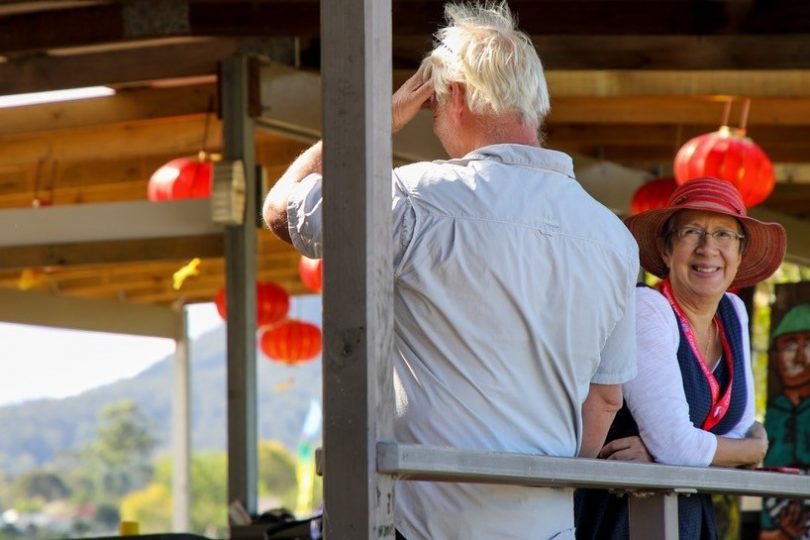
Zena Armstrong, pictured at the 2019 Cobargo Folk Festival. Photo: File.
They also said their festival could not be delivered without the “enormous contribution” of local volunteers who worked without pay throughout the year and grew to about 350 people when the event was on.
“This generous contribution of time and skills allows us to run a quality festival, but this is becoming increasingly difficult to maintain as cost-of-living increases impact on volunteer capacity to contribute,” they said.
The organisers said grassroots community festivals, such as theirs, and other folk festivals throughout Australia played a vital role in developing and sustaining the live music sector.
“They provide work for performers, foster artistic innovation, encourage cross-cultural partnerships, promote community music-making, stimulate economic development, and enhance community bonds,” they said.
Ms Armstrong and Mr Logue said since COVID, a significant amount of funding for music-related activities had been allocated to large-scale commercial concerts and tours in regional areas, but they urged the Federal Government to safeguard long-standing regional music festivals with proven track records of success.
“While numerous commercial festivals have ceased operations in the past 24 months, community-led folk festivals are proving their resilience and longevity,” they said.
Ms Armstrong told Region that the 2024 Cobargo Folk Festival had broke even, “which in the current climate we are really happy about”.
“The volunteer contribution is really what’s keeping us afloat. We’ve got a really loyal family of volunteers,” she said.
She said while attendee numbers had dropped “dramatically” after the pandemic began, they had returned close to 2018 and 2019 figures in the past couple of festivals.
“I think people are recognising that if we want to have a live music sector, then it’s a matter of supporting those places that are supporting live music,” Ms Armstrong said.
“What’s amazing is the resilience of musicians. There’s still a lot of really great Australian musicians and performers out there who are producing some of their best music ever.
“We need those people. They tell the stories of modern Australia … [and] if we want to understand who we are and where we are going, we need our artists to tell those stories.”
Planning is already underway for the 28th Cobargo Folk Festival, which will run from 28 February to 2 March.
The parliamentary committee is considering the industry-wide issues facing the live music sector in the wake of numerous venues closing and cancellations of some of Australia’s established music festivals in recent years.







